Time moves differently in the shadows. While the world spun through the chaos of recent years, Colin Self retreated into the dark spaces between dimensions, emerging with respite ∞ levity for the nameless ghost in crisis (r∞L4nGc)—an album that reads like a letter to the departed, written in languages they might better understand. Since their 2018 album Siblings and the following year's Orphans EP, the Berlin and New York-based artist has inhabited a self-imposed exile, allowing grief to become a portal to new artistic expression.
The resulting work speaks in different tongues—English, Latin, and Polari, specifically—the latter being a centuries-old code language of the marginalized, historically whispered between queer souls under the watchful eyes of authority. Through this ancient vernacular of survival, contemporary electronic experimentations, and their characteristic celestial vocals, Self has created an otherworldly atmosphere that serves as a sonic shrine to the departed and a celebration of finding levity after crisis.
In this conversation Colin Self takes us through their new album, reflects on the role of sound as a portal between dimensions, their connection to marginalized language, and the spiritual practice that guides their creative process.

Arina Korenyu: Your album, r∞L4nGc, blends radiant beauty with terror, creating an otherworldly atmosphere. Life itself is a mix of breathtaking beauty and deep horror. I also think this contrast is something everyone can relate to because we all carry both light and darkness within us. How do you see the tension between beauty and ugly in your art?
Colin Self: I think I have an unconventional sense of what's beautiful, which shows in the things I'm drawn to. I also think it relates to my sense of humor. I'll often joke about dark topics—like death or something heavy—and my friends will look at me like, "Colin, that's not funny." But to me, it is. I don't separate dark and light; I see them as part of the same spectrum. When we focus too much on the light, we sometimes ignore or deny the darker parts of life.
For the last few years, I've been doing what people call "shadow work," which is like going through the "fool's journey." You start at zero, face all the wonderful and terrible things life throws at you, and eventually end up right back at the beginning—only now, you realize that all of it is connected. All of it is part of being human.
I was just talking to a friend about the drama and pain we go through in relationships and how we often forget that those emotions make us human. We resist or refuse to accept that being angry, sad, or grieving is just as important as feeling joy, peace, or levity. You can't understand the good without experiencing the bad. You only know how great something feels when you compare it to the times you've felt terrible, and vice versa.
Arina: You incorporate Polari into your songs, which is a language tied to marginalized and queer histories. What drew you to this language, and how does it shape how your music communicates with the living and the departed?
Colin: I would start by saying that music is a non-linguistic language. It's a first language that's fluid and exists in abstract ways. As I've become more involved with music, I've always been drawn to the parts of it that are hard to explain or put into words. Much of this stems from the politics of opacity—our right to remain mysterious or exist without constantly explaining ourselves. In a world obsessed with surveillance, wanting to quantify and understand everything about us, I've been drawn more and more to hidden languages, dead languages, codes, or forms of communication that might be opaque to the public. For me, it feels liberating.
People often joke about the Cocteau Twins, saying, "I don't know what Liz Fraser is saying, but I really feel it." I've experienced this so many times myself when I sing. I'm channeling something, not thinking about its meaning. That's where I connect to the non-living, to other dimensions. Music flows through us; we're just conduits. I'm like a channel for things to pass through. This is something I appreciate about artists like Sinead O'Connor and Tori Amos—they've both described this feeling of music coming through you like a lightning bolt, from the top of your head down through your feet. That's the most powerful experience for me, where I just feel like the music is happening to me.
I pray, meditate, and have my spiritual practice, which is non-denominational, but a lot of it comes from attunement. I'll ask angels or deceased friends, "What's important here? What needs to be said or expressed?"
Polari is fun because it's a dialect—a slang that revolves around sex and hating the police. It's cheeky, funny, and filled with fantasy. You're talking about drag queens, sexual acts, or trying to avoid getting caught by cops. You're asking, "Are we safe?" or "Is that a cop over there?" I feel protective of Polari. That's why I didn't want to include translations on the record. I wanted to keep that sense of mystery.
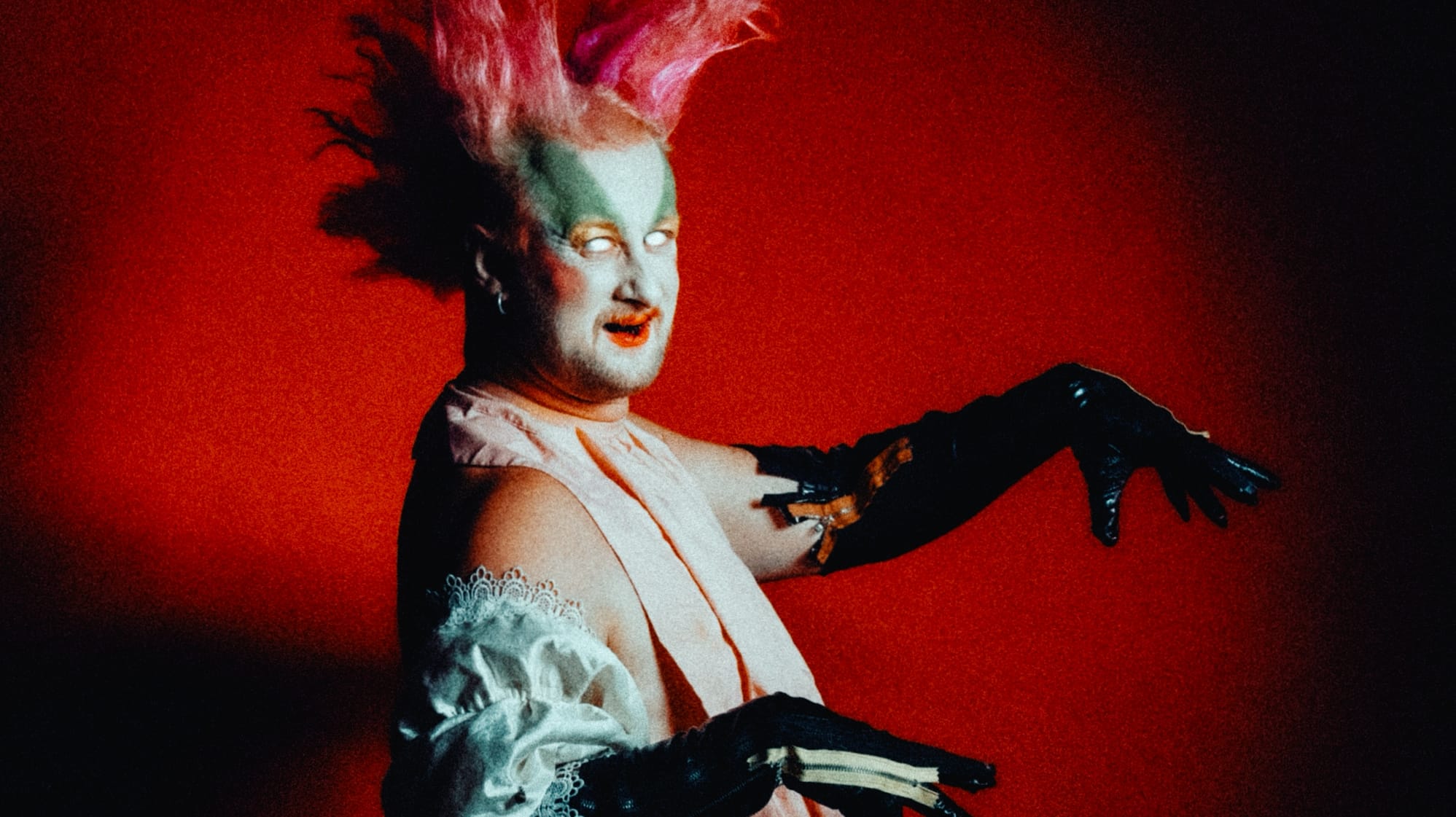
Arina: You reference the idea of the "tulpamancer"—a person who can give form to a spectral, sentient force. Can you describe what that experience was like? You already said that you have been meditating but maybe you also did some other rituals (if you feel like sharing about it, of course)? How did this experience influence the creation of this album?
Colin: There are definitely parts of my life that feel deeply personal, things I don't feel the need to share with the world. I believe in protecting those parts and having a sanctuary for them. A big part of my process also involves seeking guidance and communion with others—both the living and the deceased—to help guide me toward what's important. Much of this guidance comes from my relationship with Agosto Machado, a spiritual counselor and friend, as well as from Asher Hartman and other friends of mine. I'm fortunate to have friends who are sensitive and in tune with something beyond the surface.
I learned from Asher Hartman that what I've experienced my whole life is called clairaudience. I didn't know the term before, but it's similar to clairvoyance, where people see things beyond the material world. Clairaudience is when you hear things—like phrases, words, voices, or melodies—that come into your mind. I think a lot of musicians experience this. It's not a special gift, but something that happens frequently. For example, John Lennon woke up one morning, having dreamed an entire song, and wrote it down. Many famous songs have come from this experience—songs that feel like they're being transmitted to us somehow.
When we create music, especially music meant to be shared with others, the spirit world is just as present as the living world. We're always in communication with both realms. Even though those in the spirit world aren't physically in the room, they still hear everything. So, when creating music, it's important to consider who you want to invite into the space.
Arina: Puppetry is a significant part of your art practice. How does this craft inform your approach to music, and how do you see it intersecting with the themes of r∞L4nGc?
Colin: It's funny, but I studied puppetry when I was younger and thought I had stepped away from it for a long time. Looking back, though, I realize that little things over the years were still connected to puppetry in some way. For me, drag felt like a form of corporeal puppetry, where you're like a puppet of the music or being puppeted by spirit.
While working on this record, I found myself thinking a lot about the scale of marionettes and the smallness of puppetry. It's a folk tradition found around the world in many forms, often with a tactile quality—made of wood, metal, fabric, and other materials. The smallness of a puppet was something that resonated with me. Often, when making a big project, there's pressure to be grand and declarative, to create something huge and perfect. But while working on this record, I felt drawn to the idea of the puppet's smallness, which allowed me to permit myself to experiment. I didn't need to make the most exquisite thing; I could appreciate the imperfections and the small gestures.
Arina: While much of the album was shaped through your solitary practice, you also collaborated with Bobbi Salvör Menuez on the video for "respite for the tulpamancer" and "doll park doll." How does this collaboration tie into the overall concept of the album?
Colin: Bobbi is like a compass for me. We've known each other for such a long time. When I began working on this record, I shared that thematically I was interested in exploring the journey of losing and finding yourself—feeling lost and uncertain, then trying to find your way back to believing in yourself and your art. Many of the songs on the record stem from that theme; you can hear it in the lyrics. But beyond that, my relationship with Bobbi also revolved around using the image of a single glove as a symbol. The glove represents action, the ability to do things, create, and control, like in Fantasia or the giant hand in Mario that shapes and moves things. The image of a lost glove, a single glove on its own, became a central part of the record. The idea of the glove going back on the hand, becoming animated—this was at the heart of Bobbi and my connection. We used this idea to create puppet shows and stories that helped shape the music.
Bobbi has this incredible ability to synthesize ideas quickly, and we work well together. We can create big things in a single day, and I think it's because we both connect on this DIY, underground art-making approach. When we're together, it's all about diving in and seeing where it takes us. That spontaneous, free-flowing energy often turns into something beautiful, as if we've made something out of nothing.
This record is very much about self-doubt, about losing yourself and trying to find your way back, and about seeking guidance and mentorship. I've always made my work with community in mind, but this time I had to pause and ask, "What happens when I'm alone?" Even in those solitary moments—sitting with your shadow, sitting with darkness—you're still calling upon others, whether they're people or from the spirit world, to help you do that work.
Arina: Could you also tell more about your artwork collaboration?
Colin: It was made by Agosto Machado, whom I have mentioned earlier. Agosto is incredible. He was friends with Marsha P. Johnson and Sylvia Rivera, and he began creating shrines decades ago to honor and commemorate the dead, particularly from the counterculture community. He was also friends with the Warhol superstars and Jack Smith, and performed in several of Jack Smith's plays at La MaMa and the Play-house of the Ridiculous.
I wanted to use Agosto's shrines as the inspiration for the album cover because, for me, this record feels like a sonic shrine. In many ways, it's about honoring and remembering friends of mine who have passed away and strangers who are no longer with us. I felt a deep connection between the music and the shrines Agosto creates.
Arina: The album ends with the track "∞," inspired by the lemniscate symbol. Your 2024 EP was also called Lemniscate, and I noticed you even have a tattoo of this symbol. Clearly, it holds a lot of significance in your life and art practice. Could you tell us why it's so important to you?
Colin: It's funny—originally, the record was going to be called X, and my character, the nameless ghost, was going to be called X as well. It was meant to represent an anonymous ghost figure, a character I was developing. But at the center of the lemniscate symbol, there's an "X"—where the two loops cross. That cross represents the meeting of multiple dimensions. It's the point where different dimensions, or space and time, intersect. Since this album is about interdimensional travel and communication, the idea was that the journey would lead to coming back to yourself. So at the very end, I wanted to emphasize, "Oh, here I am."
Arina: Lastly, where can people see you performing the new record live?
Colin: We're starting at the beginning of April with a live show called Gasp at Rewire Festival in The Hague. It will be a theatrical music performance using the music from the record, and I'll also be performing it on April 21 at Volksbühne in Berlin alongside a local ensemble.
Visit Colin Self online at colin-self.com and follow Colin on Bluesky, Instagram, Facebook, and Vimeo. Purchase Colin's album respite ∞ levity for the nameless ghost in crisis (r∞L4nGc) from Bandcamp or Qobuz and listen on your streaming platform of choice.
Check out more like this:
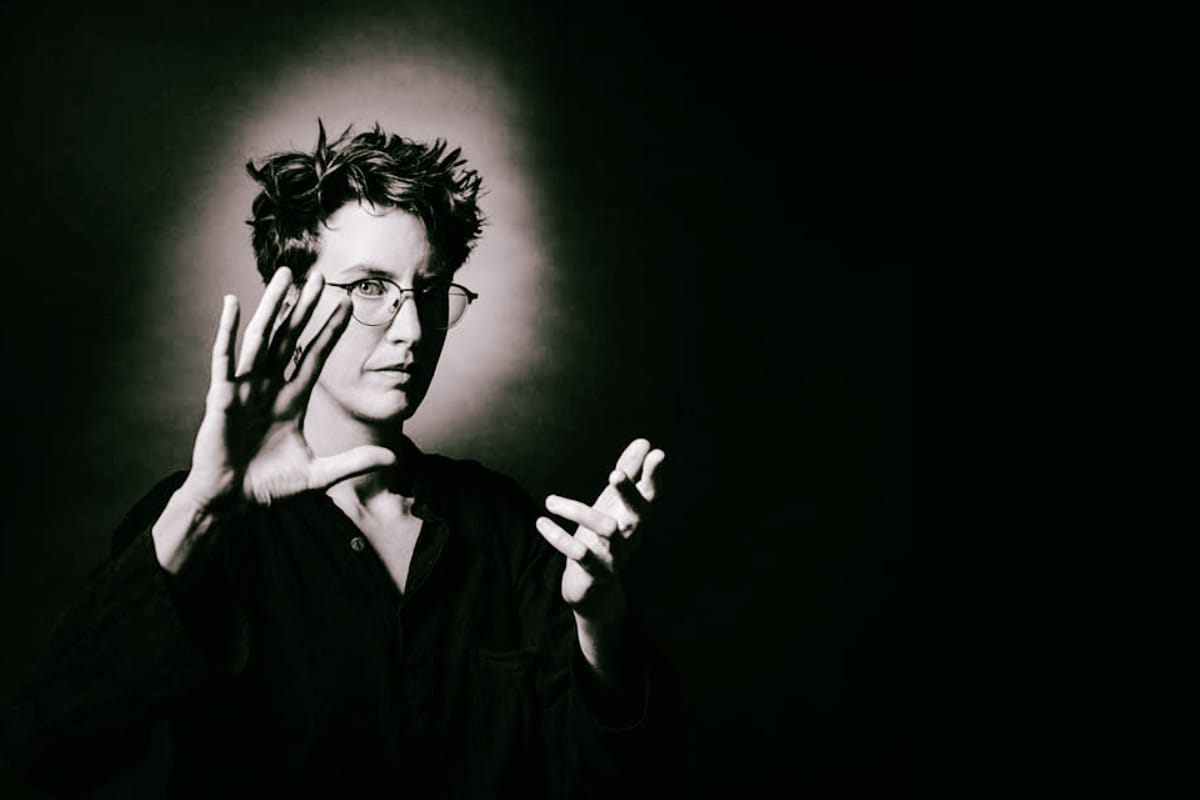
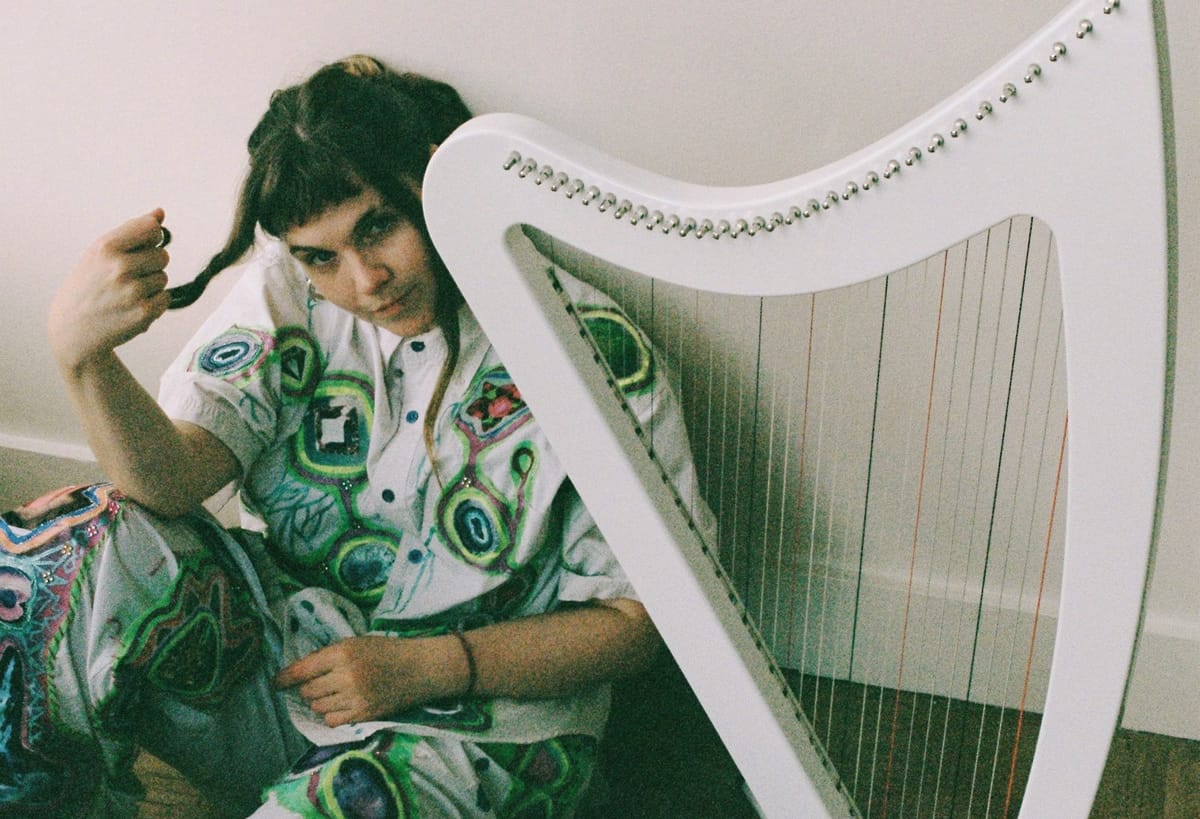


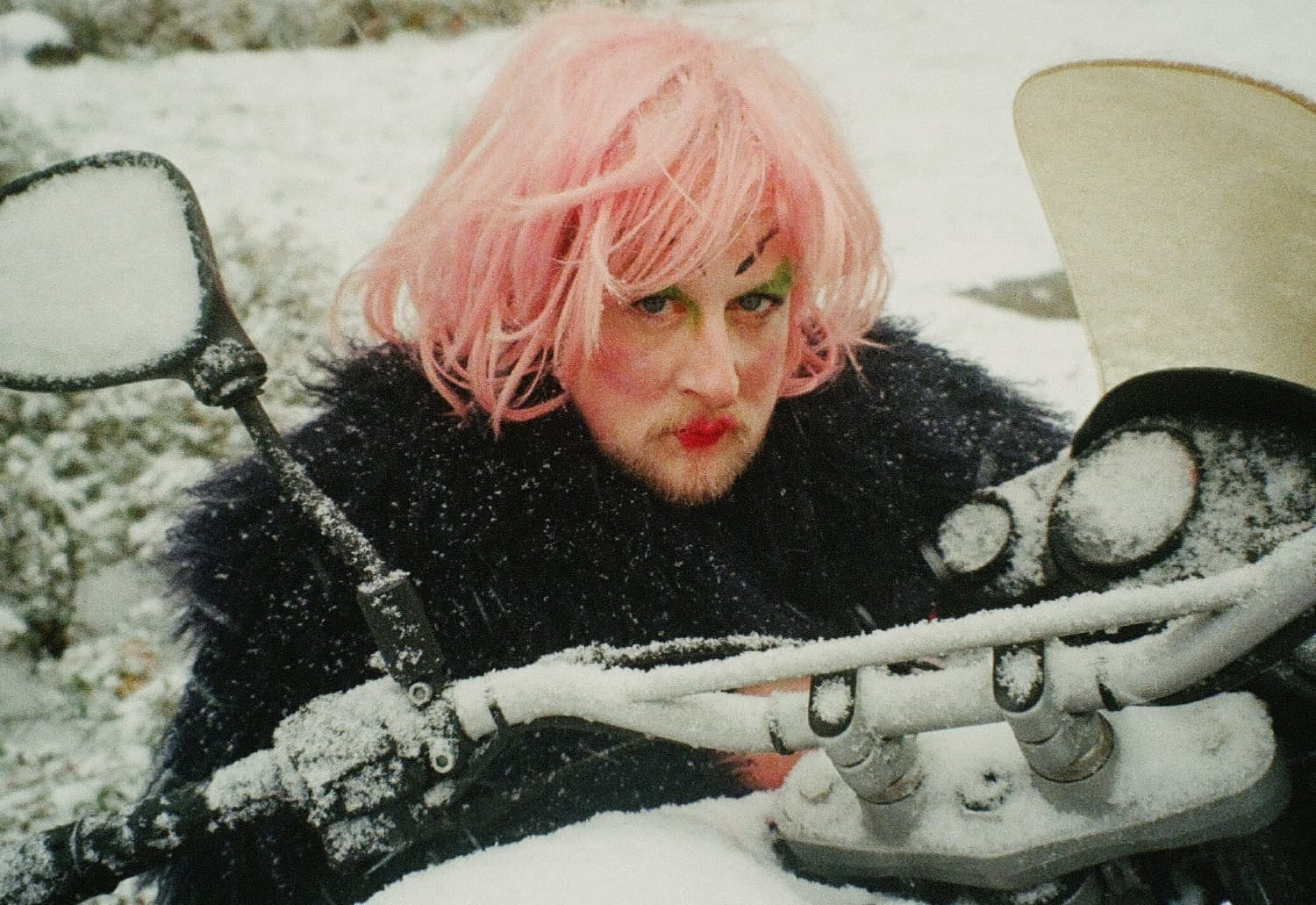


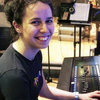



Comments